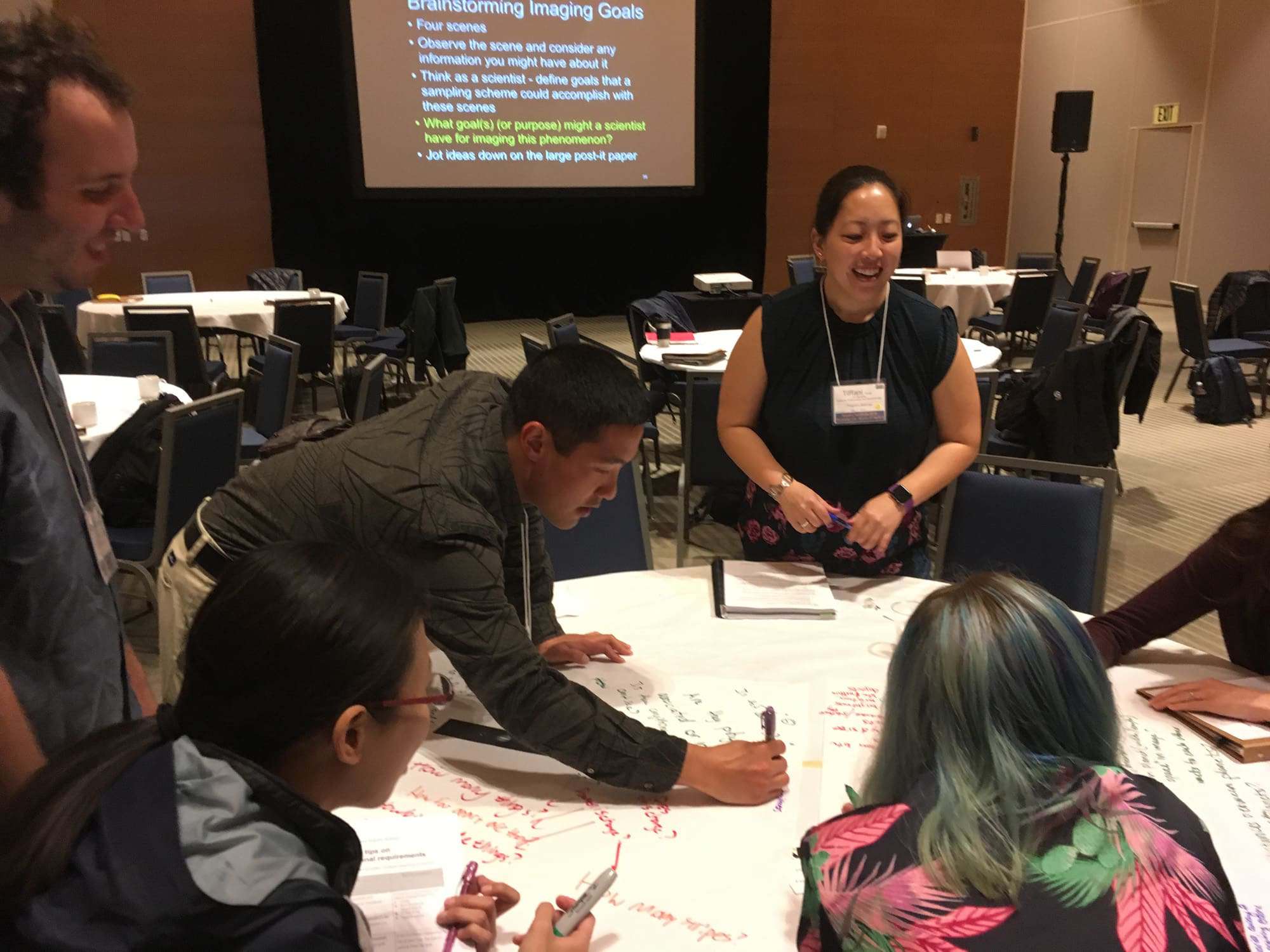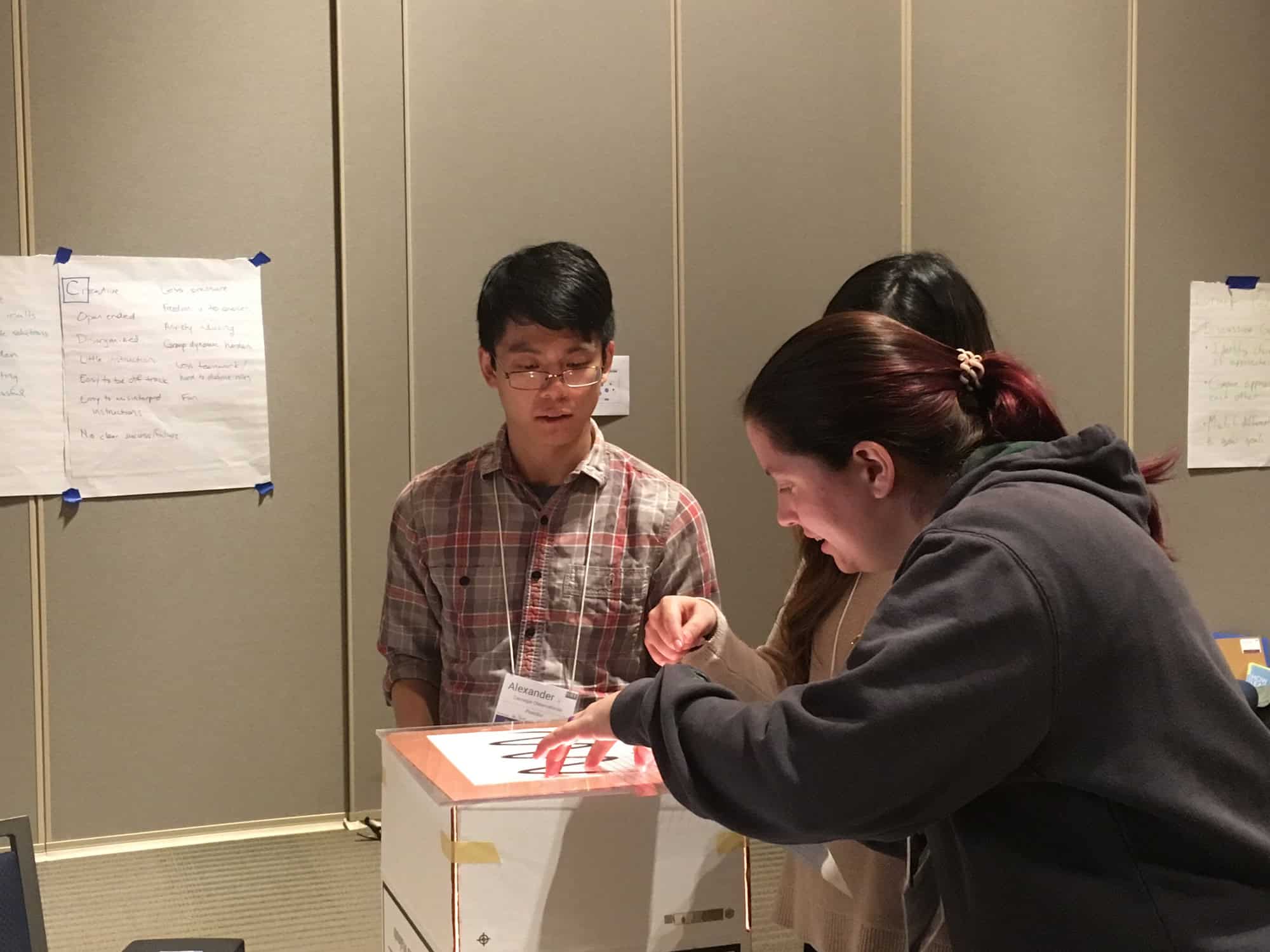Practical Experience in the PDP
A cornerstone of the Professional Development Program (PDP) is a practical experience in applying what is learned, a critically important–yet rarely provided–aspect of professional development. All participants collaboratively design and teach an inclusive STEM learning experience. However, the PDP provides practical experience with many essential skills for academic and professional success.

Designing and Teaching STEM Experiences
Participants work in teams of 3–4 to design and facilitate a STEM learning module for an undergraduate or higher-level audience. These modules—typically 3–6 hours in length—are implemented in a variety of authentic settings, including:
- Undergraduate STEM programs
- Summer schools and intensive workshops
- Laboratory courses
These learning experiences go beyond content delivery. They emphasize authentic STEM practices such as evidence-based reasoning, using models, and designing within requirements. Participants are coached to foster inclusive, student-centered environments, where instruction is more like mentoring than giving specific directions to students, as is typical in lab courses. Through their high quality STEM learning experiences, PDP participants have positively impacted thousands of undergraduates, increasing student motivation, empowerment, and retention in STEM fields.

Building Professional and Collaborative Skills
In the process of designing and teaching, participants also gain significant experience in collaborative problem-solving and project management. Each team must work efficiently and effectively to reach their shared goal. Along the way, they receive training in collaboration, communication, and group facilitation—skills highly transferable to research groups, academic departments, and STEM organizations.
Alumni frequently cite this teamwork experience as one of the most professionally valuable aspects of the PDP.
Leadership through Practical Application
Participants who return for a second year often take on the role of team leader. In this role, they lead a team that co-develops and co-teaches a learning module. They engage in a practical, research-informed leadership experience: earning trust, leveraging team strengths, facilitating meetings, making decisions, and resolving conflicts.
This opportunity provides a rare, hands-on leadership experience in a STEM context—preparing early-career scientists and engineers to lead research teams, manage projects, and contribute to effective institutional cultures. Many participants intentionally return to the PDP to build these leadership capacities.
The Institute for Scientist & Engineer Educators (ISEE) is part of University of California Observatories
https://uc-isee.org
Contact Us
Lisa Hunter,
ISEE Director
lhunter@ucsc.edu
